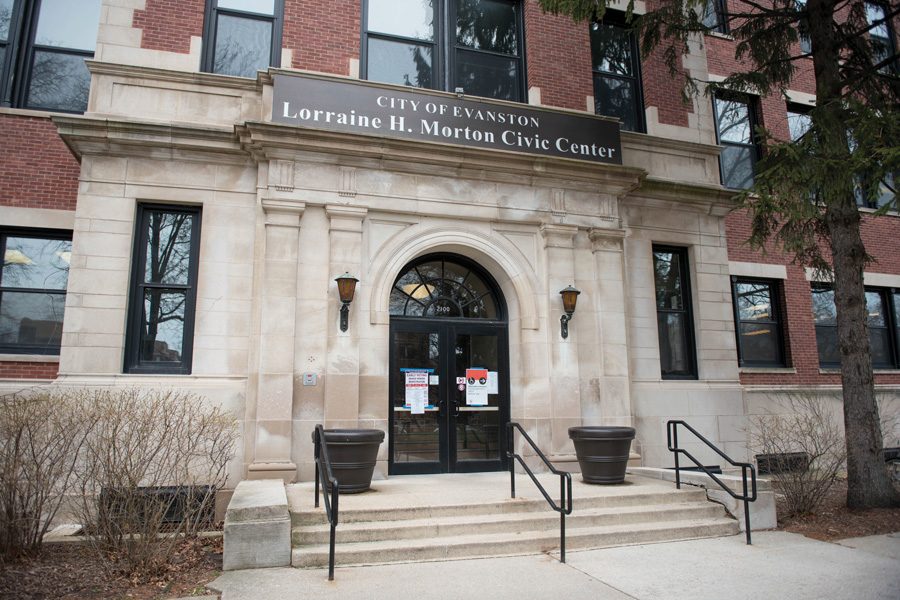City emphasizes emergency preparedness in national campaign
Daily file photo by Katie Pach
Lorraine H. Morton Civic Center, 2100 Ridge Ave. Evanston is participating in National Preparedness Month, a country-wide effort held in September to educate communities about emergency response procedures.
September 27, 2018
This month, Evanston is participating in National Preparedness Month, an annual campaign reminding residents of how they can be proactive in case of a disaster.
Sponsored by the Federal Emergency Management Agency, National Preparedness Month is a country-wide effort held in September to educate communities about emergency response procedures. Evanston Fire Department Chief Brian Scott said the theme for 2018 is: “Disasters Happen. Prepare Now. Learn How.”
“We provide some at home, practical things that (Evanston residents) can do just to plan ahead,” Scott said. “I think sometimes people just take some of these emergencies (and) get a little complacent. We want them to take a moment to plan ahead and prepare now.”
Scott highlighted two volunteer opportunities for residents to get involved: the Community Emergency Response Teams run through EFD and the Medical Reserve Corps run through the health department. Volunteers from both groups are trained in emergency response procedures and serve as a resource for first responders in the event of an emergency.
Health Department emergency response coordinator Gaurav Gaonkar said volunteers with the Medical Reserve Corps went through CPR, first-aid, and other trainings from the Red Cross this past week. He also said the Medical Reserve Corps assisted in community outreach for the health department this month.
“The nice thing about National Preparedness Month is it really promotes any type of emergency preparedness, not just hurricanes or anything like that,” Gaonkar said. “We’re even talking personal preparedness, preparedness for power outages, and then in my case, also health emergencies too. They cover a wide ground.”
Through the health department, the city prepares for anything from bioterrorism events to pandemic influenza, Gaonkar said. He said his department is also in the process of planning a city-wide preparedness fair, emphasizing involvement and continuing off the themes of emergency preparedness month.
“Involvement is one of the most recommended ways to be prepared,” Gaonkar said. “If an average Evanston resident is prepared and is promoting preparedness, they’ll not only help themselves but their families, their coworkers, their social groups. It spreads out like that.”
A news release from the city also emphasized signing up for EvanstonAlerts emergency notifications to receive texts, emails and phone alerts regarding health and safety threats. Scott said the city is working on building up the database to ensure as many people as possible get key information in the event of an emergency.
Scott suggested another preparedness idea: learning a life-saving skill like CPR or first aid. He emphasized day-to-day things people can do to prepare for a disaster such as keeping an updated home insurance plan or making sure they know how to turn off the water.
When a disaster strikes in a community, Scott said there are four parts to ensuring the best response: federal resources, state and local resources, private partnerships and most importantly, community members themselves.
“When we talk about preparing now, it’s having a mindset that you’re going to proactively prepare, and train, and educate ourselves,” Scott said. “If God forbid we have a significant disaster, we can best help our neighbors.”
Email: [email protected]
Twitter: caity_henderson


